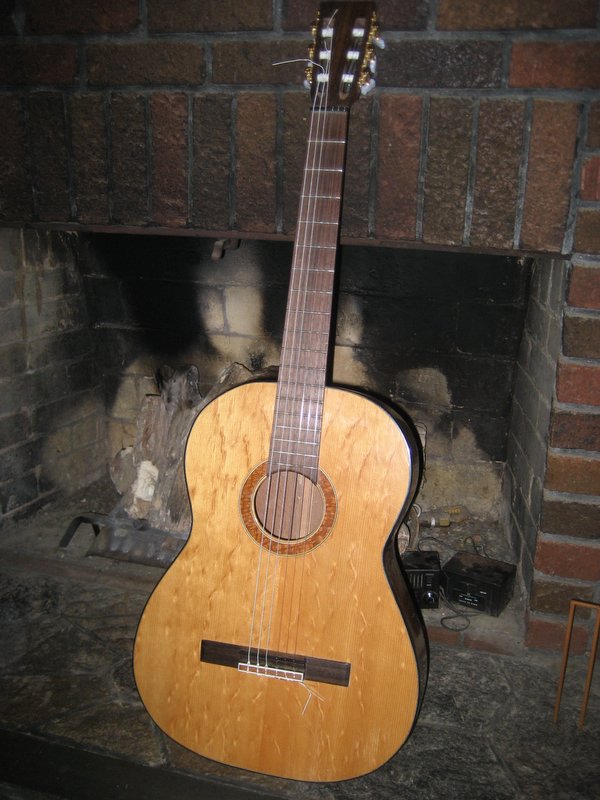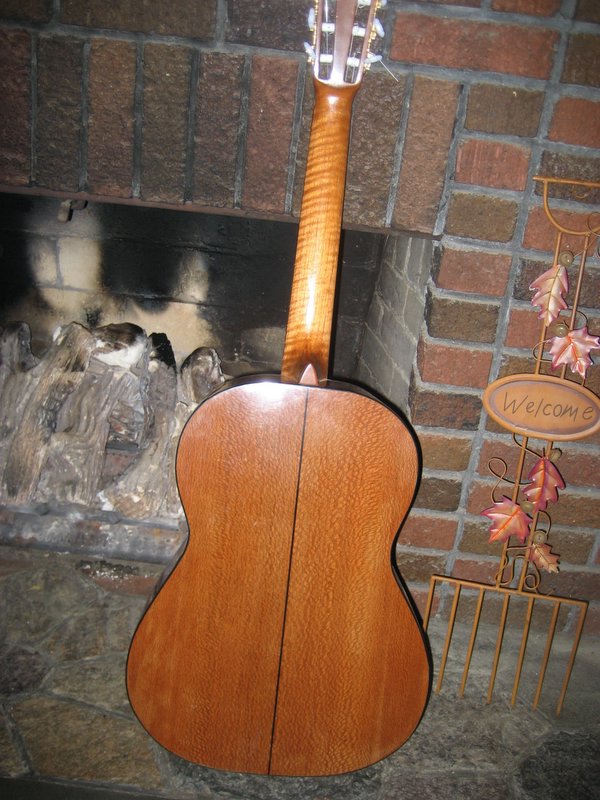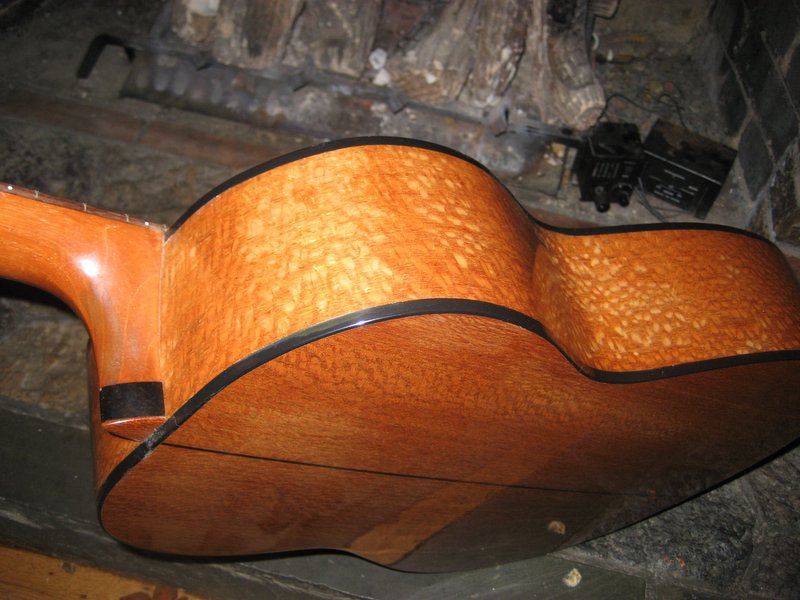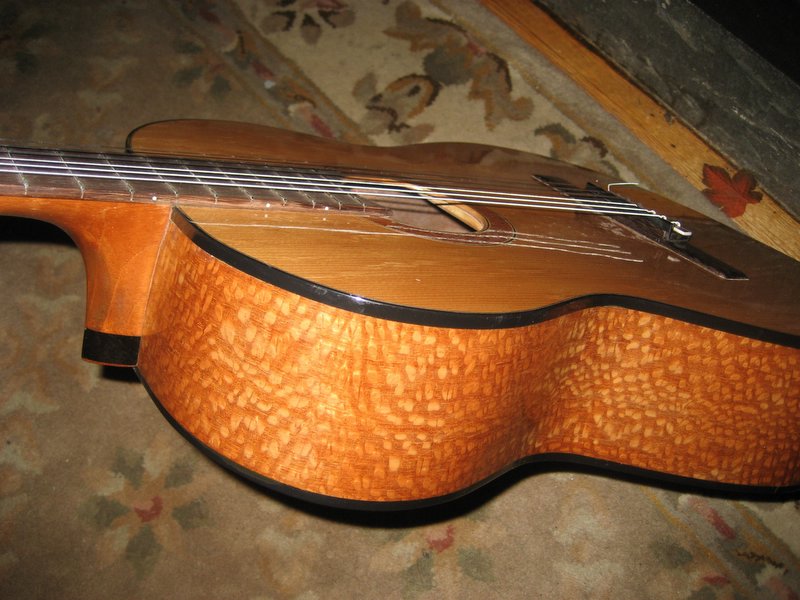Here are some pics as promised of the classical I finished up recently.




Now for the problems. I posted some of this a couple weeks ago and it generated a good amount of feedback (which is always appreciated).
Problem: Poor volume and dead sound. No ring on the upper strings.
Feedback indicates I probably over built. Soundboard was around .11 and used Sitka Bear Claw with lacewood back/sides. Hauser body dimensions.
One suggestion was to use high tension strings which I put on tonight and they did help.
Also seems to have gotten a little better on its own from playing for past two weeks.
Went down to the Guitar Center today and played a bunch of classicals ranging in price from $99 to $2,000 range. Mine sounds like those in the $199 range which is pretty disappointing but hey I am having fun and good learning experience. Sure looks impressive on my wall


Now for my remaining problem. The upper strings do not have any ring to them. Base strings are ok.
Especially puzzling is the G string sounds dead dead dead.
Thought maybe I had a problem with the nut seating so I put a capo on to check it out and still kinda dead but seemed slightly better.
I used black horn nut and saddle. Is it possible this would make that much of a difference? Thinking of going to a bone nut and saddle
Good clearance in the nut slot - no binding and strings are slightly raised above the nut channels.
Fret board seems good and level as well as frets.
Good action (maybe a little too low).
I think my break angle is higher than it should be as a result of setting the neck angle as I do with steel strings
Straight edge was dead on top of the bridge with frets installed
I considered removing neck and bridge and taking down the soundboard some but to tell you the truth I dont have the patience to rework stuff. Might just jump in and buid another from more traditional tonewoods and learn from the experience.
What do you think?? Give it to me straight - don't pull any punches. Should I use it for target practice? Hang it on the wall of shame?? Put a clock and radio in the sound hole and use it as a wall hanger? Give it to one of the grand kids and let them learn guitar??





